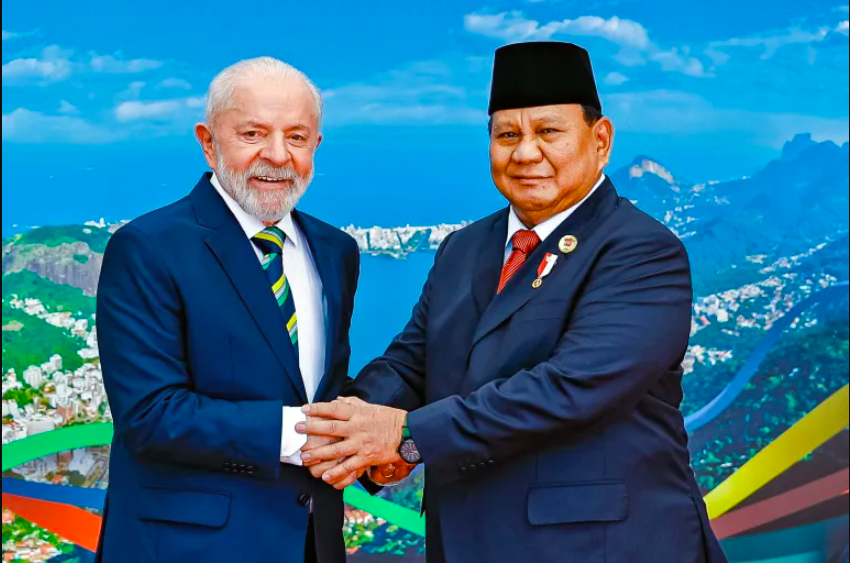
Published 07/01/2025 15:48 | Edited 01/07/2025 15:49
Brazil announced this Monday (6) the entry of Indonesia as a full member of BRICS, a group originally formed by Brazil, Russia, India and China, with South Africa joining the bloc in 2010. The announcement takes place in a time when BRICS seeks to expand its geopolitical influence and the number of members. Under the Brazilian presidency of the group in 2025, Indonesia’s accession marks an important step in the attempt to strengthen the Global South.
Indonesia’s candidacy received approval during the Johannesburg Summit, in August 2023, when BRICS members decided, by consensus, to support the Asian country’s entry. According to Itamaraty, the approval followed the principles and criteria established in Johannesburg for the expansion of the membership.
Indonesia’s accession was also influenced by changes in the country’s internal politics. Prabowo Subianto, a 73-year-old former general, assumed the Indonesian presidency in October 2024 and declared his interest in joining the bloc after the presidential elections. In a joint statement, the Brazilian Ministry of Foreign Affairs highlighted that Indonesia, the largest population and economy in Southeast Asia, shares with the other members support for the reform of global governance institutions and will contribute to deepening multilateral cooperation in the Global South.
“The Brazilian government congratulates the Indonesian government on its entry into BRICS. Holding the largest population and the largest economy in Southeast Asia, Indonesia shares with the other members of the group support for the reform of global governance institutions and contributes positively to the deepening of cooperation in the Global South”, declared the Brazilian Foreign Ministry in an official statement. .
The Ministry of Foreign Affairs in Jakarta also celebrated the BRICS membership, stating that it is a “strategic step towards improving collaborations and cooperation with other developing nations, based on the principle of equality, mutual respect and sustainable development”. Indonesia also expressed “gratitude to Russia”, which will preside over the BRICS in 2024, for its support in facilitating its accession.
Expansion and disputes of global influence
Indonesia’s entry occurs in a context of successive attempts to expand the BRICS. In 2023, the bloc approved the accession of six new countries, including Iran, Egypt and Ethiopia. However, Argentina withdrew from joining the group after the election of Javier Milei as president, replacing Alberto Fernández.
In the same year, the bloc began discussions on the creation of a new category of partner countries, with a lower status than full members, but with the possibility of participating in summits and meetings. Among the countries considered for this category are Cuba, Türkiye, Thailand, Nigeria and Algeria.
Experts in international relations and economics disagree on the impacts of BRICS expansion. While some see the move as a geopolitical advance that strengthens the influence of China and Russia in opposition to the United States and the European Union, others question the immediate economic benefits. The very entry of countries like Cuba would reveal that the BRICS would not be seeking economic advantage, but rather a dispute over an area of geopolitical influence.
Indonesia’s strategic role
Indonesia, with its strategic position in Southeast Asia and its growing global relevance, promises to be an influential member of the BRICS. Its accession reinforces the bloc’s narrative in favor of a more inclusive and multipolar global governance, in a context of growing rivalries between major international powers.
In a statement, the Indonesian government highlighted: “This achievement shows Indonesia’s increasingly active role in global issues and commitment to strengthening multilateral cooperation to create a more inclusive and fair global structure.”
Source: vermelho.org.br

